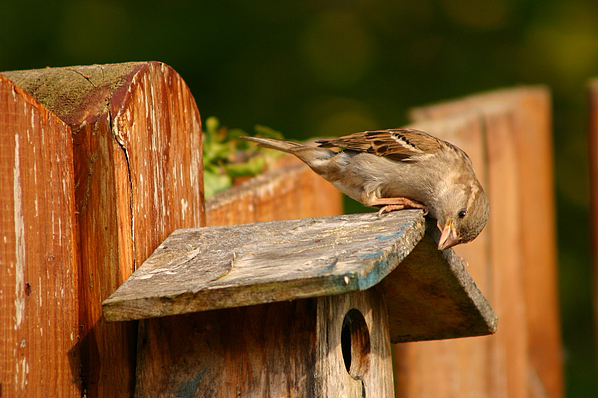Sparrow hotels needed to save dwindling city bird numbers: CBS


Garden bird populations in cities are struggling but are doing better in the countryside, national statistics office CBS and bird monitoring organisation Sovon Vogelonderzoek have found.
Populations of 13 out of 20 species which have traditionally made the city their home, such as the sparrow, jackdaw and blackbird have been falling since 1990, the figures show. However, blue tits, house martins, great tits, green finches, goldfinches and song thrushes are increasing in number outside the urban areas.
‘Once upon a time humans took over the birds’ territory and initially some species adapted to that very well. But cities are becoming a less accommodating environment for birds,’ Sovon researcher Albert de Jong told the Volkskrant.
‘The falling number in garden birds in cities and the increase in the countryside are two separate processes,’ De Jong said. ‘Many birds have a very territories. The sparrow, for instance, spends his whole life within a range of one kilometre from where he was born.’
The reasons for the dwindling populations are fewer eggs, fewer chicks reaching maturity and lower life expectancy. Among the possible causes are changes to building methods. ‘ A starling or a sparrow could make its nest under a roof tile but with better insulation those days are gone,’ the Volkskrant quotes CBS researcher Cor Pierik as saying.
Shrubberies
Another reason for the dwindling garden bird numbers is that cities are increasingly built up. There is a lack of open areas in cities for birds to feed and gardens are paved or grass put in instead of shrubberies.
‘It may be maintenance poor but it is not a good environment for birds such as the tailed tit and the dunnock, which like to breed in thick undergrowth,’ De Jong told the paper.
Possible solutions to the problem include provisions for birds in new builds, such as a ‘sparrow hotel’, i.e. a row of nesting boxes attached to the façade, and ‘fly in holes’ for swifts.
Thank you for donating to DutchNews.nl.
We could not provide the Dutch News service, and keep it free of charge, without the generous support of our readers. Your donations allow us to report on issues you tell us matter, and provide you with a summary of the most important Dutch news each day.
Make a donation